12 days of Xmas: Rock drumming pioneer JM Van Eaton
Jerry Lee Lewis drummer interviewed by Steve Smith
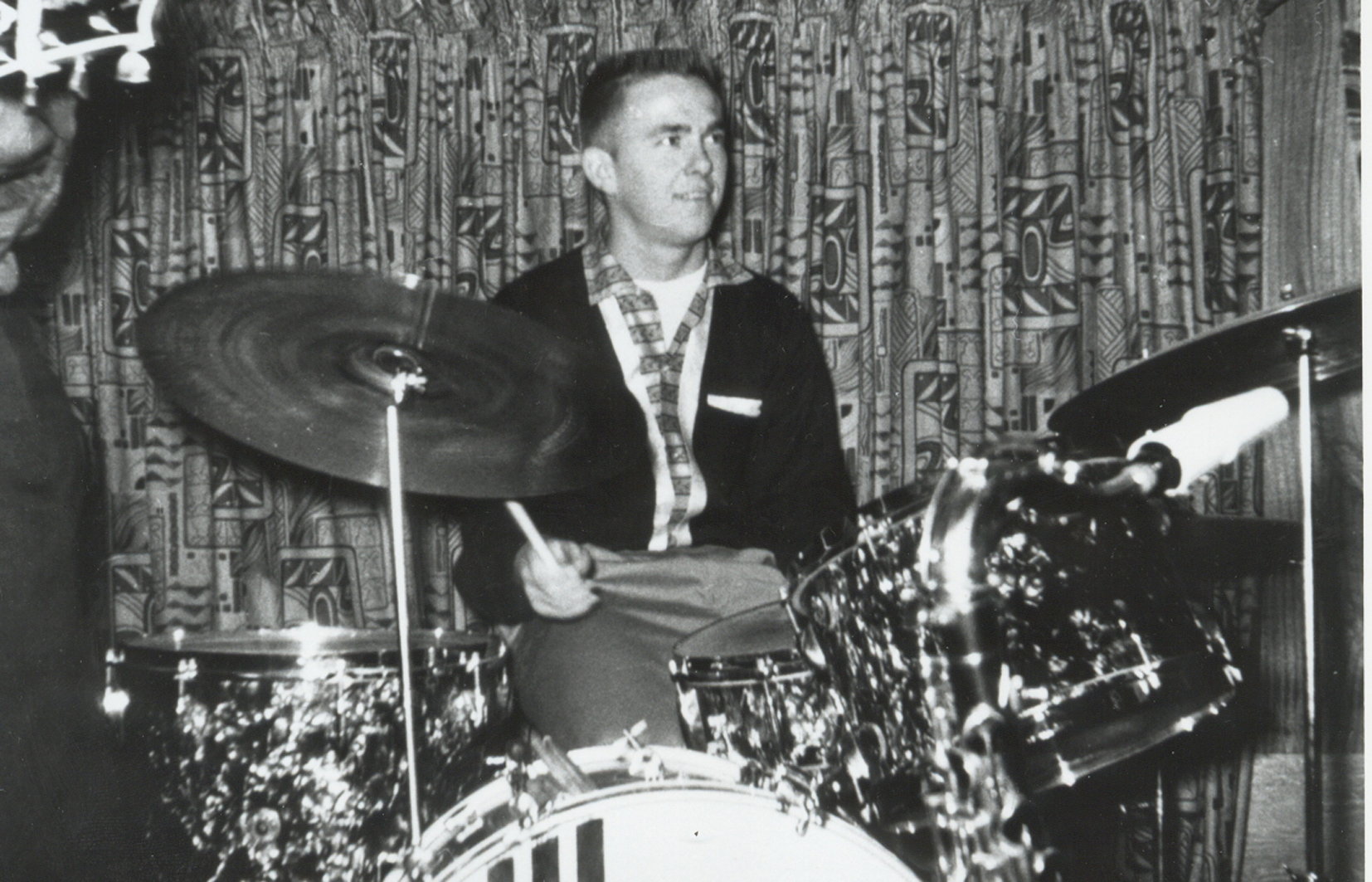
J.M. Van Eaton
Born: December 23, 1937 in Memphis, Tennessee
Interviewed by Steve Smith in Nashville, Tennessee, on July 19, 2001
Drummer J.M Van Eaton was still a teenager when he began recording at Sun Records in Memphis in 1956. He was part of a core of young musicians who were stretching the possibilities of what was "acceptable" in the once staid environment of country music. By laying on heavy backbeats, distorted guitars, honking saxophones, and pumping pianos, these young players gave rockabilly its distinctive sound, and helped define the character of rock.
During Sun's brief but hot run as a hit-making machine, Van Eaton played on more than two thirds of all the recordings made on the label, including Jerry Lee Lewis's biggest hits: "Whole Lotta Shakin' Goin' On," "Great Balls of Fire," and "Breathless." His hard-driving style can also be found on various gems by Cash and Orbison, as well as rockabilly cult classics from Billy Lee Riley ("Red Hot" and "Flyin' Saucers Rock & Roll") and Bill Justis ("Raunchy").

How did you come up with the idea of playing the shuffle with both hands (with Jerry Lee Lewis)?
That was just something that popped in there, man—it sounded like it would fit. [Jerry]'s doing this thing with his left hand, and up here on the right hand. I figure I'll try to match that. So Jerry's piano playing is exactly like my drum playing was. It was the perfect combination, and I think maybe watching him doing the things he did made me kick it in a little bit better, you know?
Get the MusicRadar Newsletter
Want all the hottest music and gear news, reviews, deals, features and more, direct to your inbox? Sign up here.
What kind of creative input did Sam Phillips have at the Sun sessions?
Sam Phillips had a great ear. He was a radio man, and he knew sound. I'm not sure [if] he was a musician, but he could tell you when something wasn't right. He'd come out and say, "Do it different. Play something else." The A&R guys that he hired, Jack Clement and Bill Justis, they were musicians. They could tell you if the bass player was going to the wrong chord, or if you needed a modulation, or whatever.
Fortunately for me, [Sam] liked my playing, you know? So I got some gigs. Now I didn't know if it was my playing or the new set of drums that I bought, you know? But one of them got me in the door. [LAUGHS]
What kind of drummer did you consider yourself?
I thought we were rock'n'rollers, man. We were the new breed—white guys trying to play black music and come up with something creative. And lo and behold, here comes Jerry Lee Lewis, and, man, you can't put a label on that. So, you know, one thing led to another.
You were the first drummer to play with Johnny Cash, right?
Right. We were cutting sessions down [at Sun], and Jack Clement was writing some stuff that he wanted Johnny to record. He asked me to come and play, [but] to be honest with you, I don't think Cash wanted me on that session. He didn't want a drummer. I don't think he likes drums to this day.
So I come in, and I've got this brush in one hand and a cross stick in the other. And we do "Guess Things Happen That Way" and "Ballad of a Teenage Queen." And we may have gotten over using the hi-hat on [those tracks]. Then we cut this record called "Straight A's in Love," which is the closest thing to rockabilly [we did]. I mean, I actually got in a rimshot or two. At the end of the song, I reach over and hit that cymbal, you know, like drummers do at the end. And Cash went straight through the ceiling: "Don't ever do that again," you know?
So we cut the song over, and we left the cymbal crash out of it. But, you know, he liked me. He offered me a job, but I couldn't see me playing with the stick and a brush. I wanted to play rock'n'roll. I love Johnny and he's been very, very successful; that just wasn't what I wanted to do at the time. Conway Twitty was another one that I thought was more country than rock'n'roll. I played with him for a while, and all he wanted to do was sing that old country music. [LAUGHS] But I probably should have gone with him; [he] sold lots of records.
You also recorded with Roy Orbison. On "Devil Doll," you actually play like a jazz beat on the hi-hat.
That was kind of quite by accident, really. Orbison had been recording at Sun, and he got crossways with his band. The drummer and the bass player went back to Texas, and J.M. got to cut the record. [LAUGHS] I thought it turned out pretty good, [but] Roy didn't cut too many records after that on Sun because he was a fantastic ballad singer, and they just wasn't going to cut the ballad stuff with him there. We also cut the demo for "Claudette," which the Everly Brothers had a big record on. Orbison wrote that song, too. [He] was just a special person. We became close friends, and I enjoyed working with him.

The Roots Of Rock Drumming edited by Daniel Glass with additional editing by Steve Smith is available now from Hudson Music.
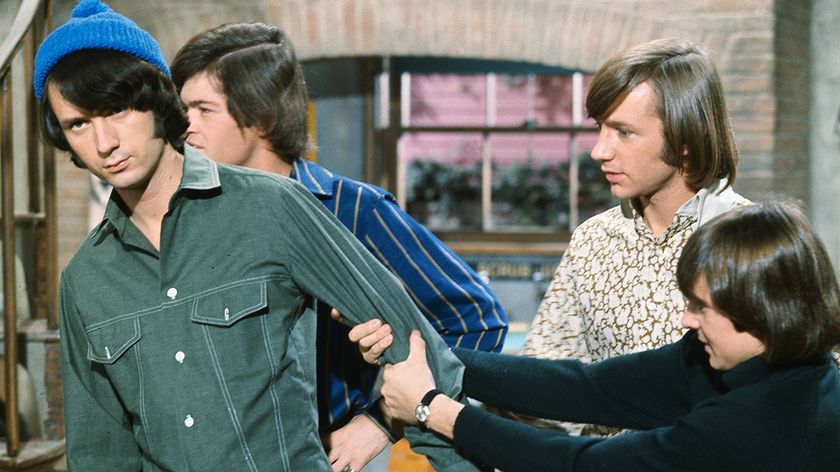
"They said, ‘Thank you, but no thank you - it’s not a Monkees song.’ He said, ‘Wait a minute, I am one of the Monkees! What are you talking about?’": Micky Dolenz explains Mike Nesmith's "frustration" at being in The Monkees
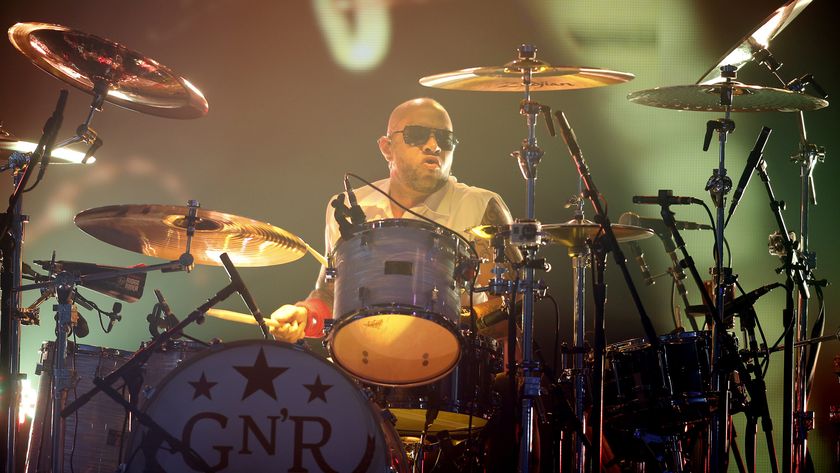
“There’s nights where I think, ‘If we don’t get to Paradise City soon I’m going to pass out!’”: How drummer Frank Ferrer powered Guns N’ Roses for 19 years
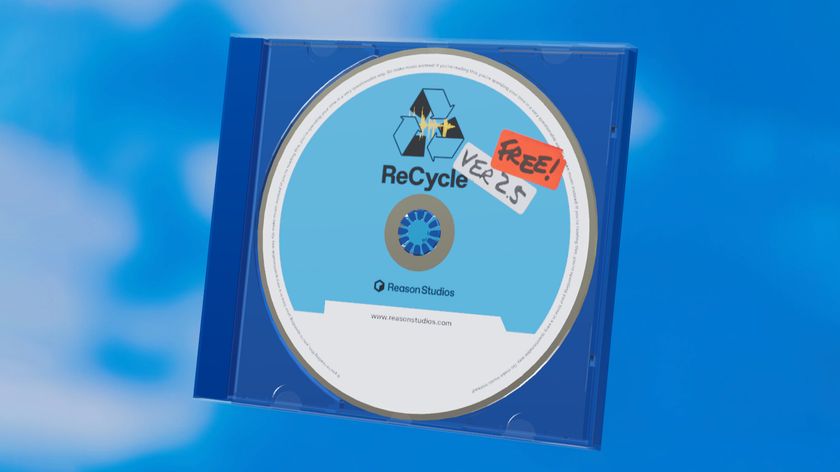
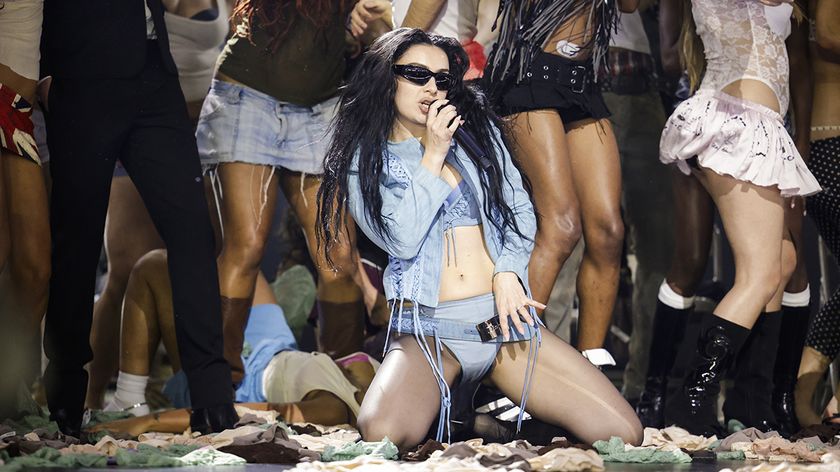
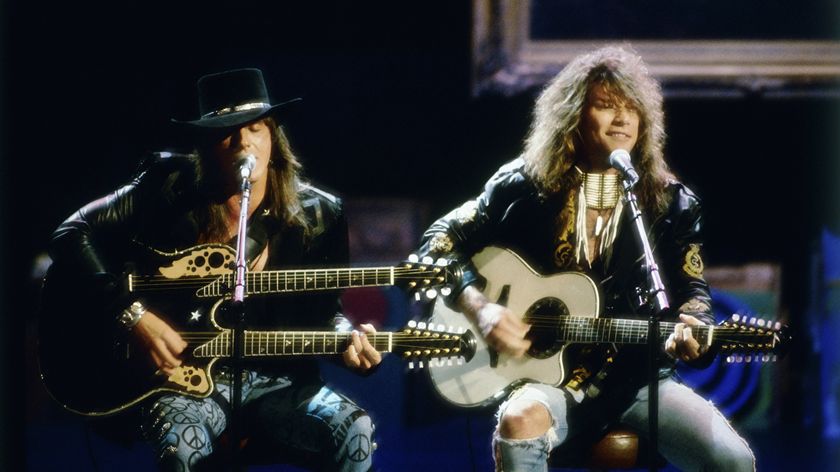
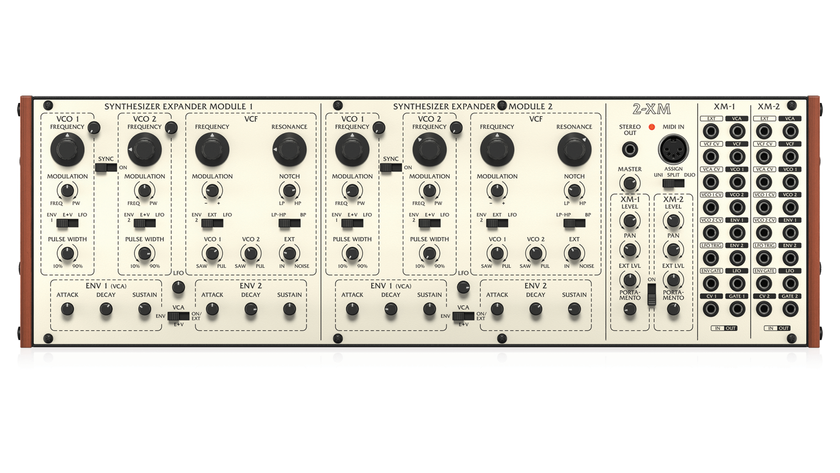
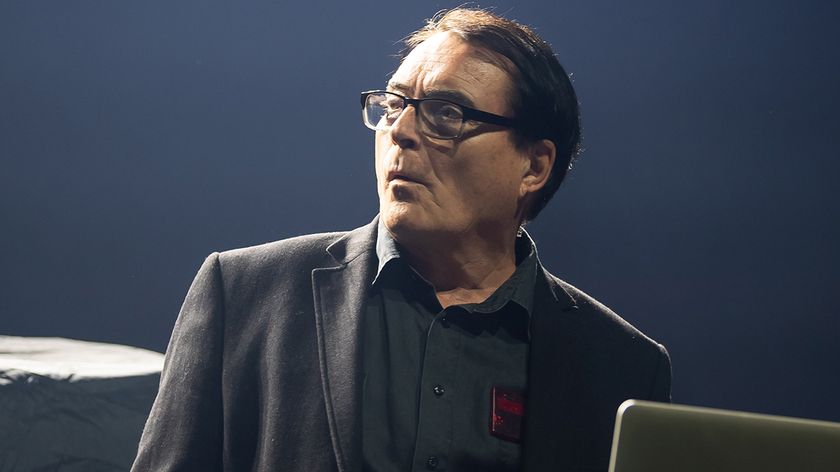
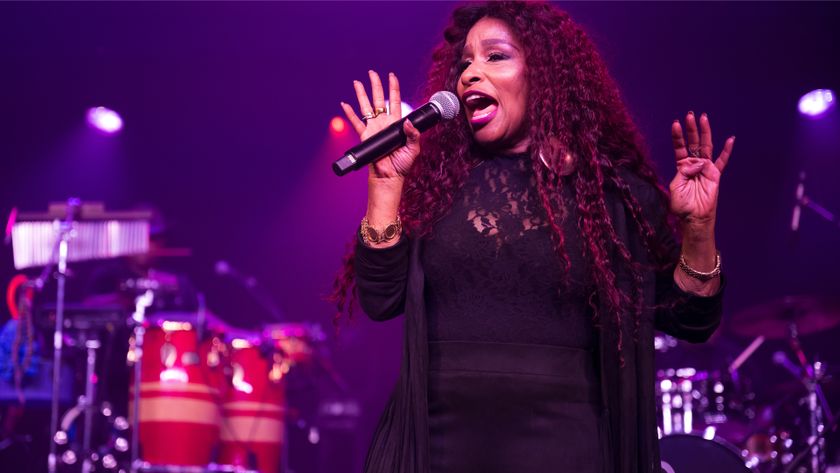
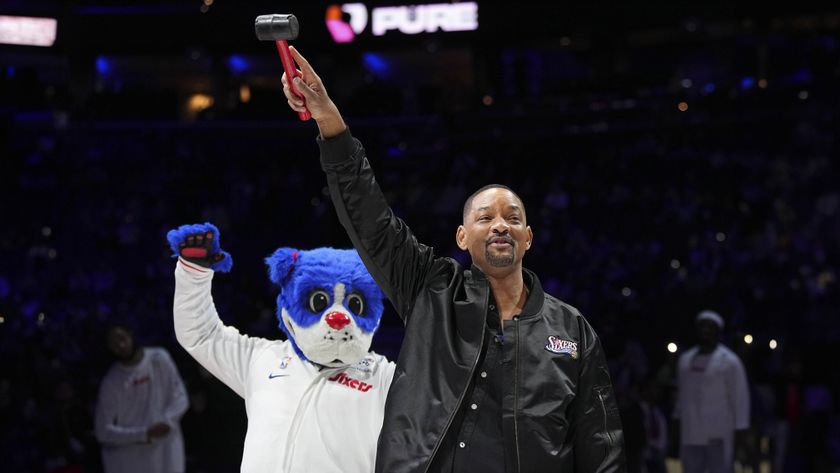


![Chris Hayes [left] wears a purple checked shirt and plays his 1957 Stratocaster in the studio; Michael J. Fox tears it up onstage as Marty McFly in the 1985 blockbuster Back To The Future.](https://cdn.mos.cms.futurecdn.net/nWZUSbFAwA6EqQdruLmXXh-840-80.jpg)